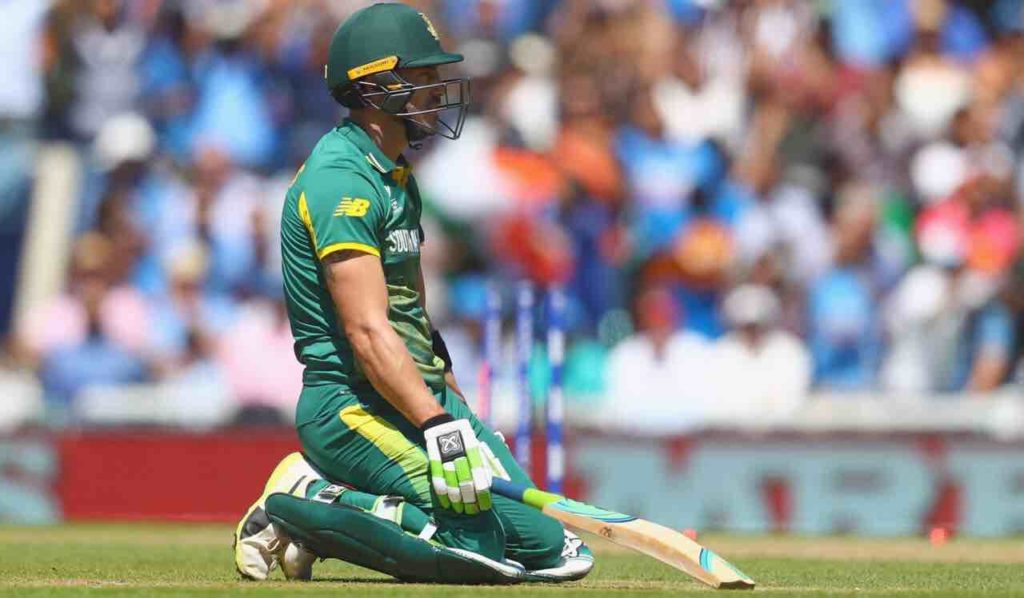The top-rated batting unit on the planet failed to live up to the hype once again at the 2017 Champions Trophy.
Prepare yourself for the brutal truth. The batsmen in the South African top- and middle-order are not as good as they are made out to be.
The stats tell us that Hashim Amla and AB de Villiers are among the greatest players in the history of ODI cricket. They tell us that Quinton de Kock is among the most destructive of a new generation of aggressive opening batsmen. They show us why Faf du Plessis is one of the most consistent players in the 50-over game, and why David Miller is among the most devastating finishers at the back-end of an innings.
Yet, when we look at the number of Proteas batsmen in major competitions, the stats tell a very different story. South Africans have never performed to any telling degree at World Cups and Champions Trophy tournaments.
That very fact should call the greatness of some of those players into question – at least in the ODI format. Indeed, what have these players actually achieved in the 50-over version of the game?
The Proteas’ eight-wicket loss to India on Sunday brought their 2017 Champions Trophy campaign to a premature end. While they went into the competition as the No 1 ODI side on the planet, the only surprise was that they folded in the group phase and not in a playoff match.
REPORT: India dump Proteas out
Fans and stakeholders reacted angrily in the wake of the losses to Pakistan and India. A number of former Proteas players have since voiced their disappointment on various platforms.
The prevailing emotion appears to be frustration. After 25 years of failing at World Cups, and after almost two decades since South Africa’s one and only ICC knockout trophy success, the Proteas aren’t getting any better at handling the pressure.
The Proteas have had their problems with the ball over the years. Indeed, death bowling was thought to be their Achilles’ heel in the 2016-17 season (not that it cost them too dearly in bilateral series against New Zealand, Sri Lanka and Australia, though).
However, when the pressure has been exerted in the big tournaments, the batsmen have capitulated. Individuals have thrown their wickets away, either via poor shot selection or – as we saw in the most recent game against India at the Oval – suicidal running between the wickets.
There will come a time when someone gets to the bottom of this phenomenon. Perhaps the Proteas need more mental coaches and psychologists to properly address this problem. Perhaps the current coaching staff isn’t pushing the batsmen nearly hard enough.
What the numbers show us, is that the top South African batsmen simply haven’t responded in the matches that matter. De Kock scored 53 against India at the Oval on Sunday. Amla scored 35, Du Plessis 36, De Villiers 16 and Miller 1.
How about the game against Pakistan, the match that ended in a loss, and effectively compromised the Proteas’ chances of progressing to the playoffs? Miller top scored with 75 not out in that clash. De Kock scored 33, Amla 16, Du Plessis 26 and De Villiers 0.
Many have advocated the selection of a side that bats deep. Chris Morris, Andile Phehlukwayo, Kagiso Rabada and several others can be effective at the death of an innings and ensure that South Africa adds between 80 and 100 runs to their final total. Those players cannot, however, compensate for a top-five collapse.
For some reason, the Proteas just cannot seem to get this right at big tournaments. We’ve witnessed many different approaches over the years, none of which have yielded the desired results.
Remember the ‘brave cricket’ of Graeme Smith and Mickey Arthur’s team at the 2007 World Cup? The Proteas went hard at the Australians in the semi-final of that tournament, and Smith scored 2, De Villiers 15, Jacques Kallis 5, Herschelle Gibbs 39 and Ashwell Prince 0. South Africa finished on 149.
The Proteas then failed to chased down New Zealand’s 221 in the 2011 World Cup quarter-final. The top five scores on that occasion were: Amla 7, Smith 28, Kallis 47, De Villiers 35 and JP Duminy 3.
In 2013, the Proteas were beaten by England in the Champions Trophy semi-final. Once again, the batsmen failed to show any mettle or application and South Africa finished on 175. Colin Ingram scored 0, Amla 1, Robin Peterson 30, Du Plessis 26 and De Villiers 0.
The pattern is clear. No matter how much the likes of Amla, De Villiers and Du Plessis have achieved over the course of their respective careers, they may one day come to lament their failings in the ODI tournaments that matter most.
The 2015 World Cup was another case in point. The Proteas failed to chase down India’s 307 after Amla scored 22, De Kock 7, Du Plessis 55, De Villiers 30 and Miller 22.
South Africa battled again in the game against Pakistan, with De Villiers (77) the only man to score a half-century as they tried – and failed – to chase down 222.
South African cricket needs to address these issues sooner rather than later. The 2019 World Cup will be staged in two years’ time. The numbers suggest that the problems run deeper than the recent Champions Trophy or World Cup campaigns.
It’s a chronic ailment, and treatment is long overdue. The time has also come to admit that the men at the helm don’t have what it takes to cure this disease.







